Health Care > EXAM > HLTH 1030 Knowledge Questions And Answers (All)
HLTH 1030 Knowledge Questions And Answers
Document Content and Description Below
HLTH 1030 Knowledge Questions And Answers.1. Briefly explain how the following legal and ethical considerations relevant to the nursing profession are applied in nursing practice in your State/Territ... ory. a) Children in the workplace: Children should be ensured no matter what, particularly at the working environment in nursing practice. One must experience the appropriate criminal screening, rigorous screening like DSCI and Working with children check (WWCC) in nursing practice to ensure the safety of the children in South Australia. b) International Council of Nurses (ICN) Code of Ethics for Nurses (Nursing and Midwifery Board of Australia): Code of ethics is a bunch of ethical rules which act as a guidance to practice morally. The code traces the obligation to regard, promote and protect the fundamental rights of the individuals in a nursing profession. Code of ethics for nurses is applied similarly to everybody in the nursing profession in Australia. It features the significant administration and clinical practices that ought to be used to enhance the quality of care, obligations that should be dealt with by nurses and the qualities that nurses ought to have in their nursing practice (NMBA 2020). c) Code of Conduct for Nurses including professional boundaries (Nursing and Midwifery Board of Australia): The Code of conduct for nurses arranges the legal prerequisites, professional manners and conduct anticipations for nurses in entire practice settings in Australia (NMBA 2020). As per the code of conduct, nurses must have regard for the beliefs, culture and the dignity of the person who is receiving care. Nurses ought to give sufficient and precise data identifying with their care and the medical care things. d) Codes of practice (e.g. workplace health and safety, codes of practice or compliance codes): A Code of practice gives concrete direction to individuals who have work health and safety duty of care in the conditions depicted in the code. These codes do not supplant the WHS laws however give direction on best practice measures for specific kinds of dangers, how to accomplish the norms needed under the Act, and powerful approaches to distinguish and oversee risks (SafeWork SA n.d.). Nurses confront various dangers consistently when they are dealing with various patients. Subsequently, the codes of practice aids to escort the nurses in handling all the risks in a protected way without risking the health and safety of their patients. e) Continuing professional education opportunities and mandatory CPD requirements for nurses: Continuing professional education gives occasions to nurses to keep up, improve just as expand the acquaintance, aptitudes and competence which could help them in building up their personal and professional qualities. CPD is significant for all experts in the medical services industry since it helps in instilling and growing new aptitudes to the nurses as a method of assisting them to stay update with the changing patterns and practices in the business. Nurses must achieve twenty hours of proceeding with specific guidance yearly to be qualified for CPD revalidation and this must be adequate to the nurse’s scope of practice (NMBA 2018). f) Direct and indirect discrimination and its implications in nursing practice: Direct discrimination alludes to when an individual is treated unjustifiably just in light of the fact that they are of dissimilar religion, race, age, or gender. Indirect discrimination occurs when there is an approach or maybe practices that applies to everyone in precisely the same technique, however it is unjustifiable and furthermore terribly affect various individuals contrasted with others. The fundamental ramifications of discrimination in nursing practice is that the discriminated party frequently turns out to be mentally troubled. g) Duty of care of an enrolled nurse: Duty of care of an enrolled nurse comprises of the moral and lawful commitments of them to aid keep the people ensured out of any kind of damage or injury and permit them to have proper consideration according to their requirements. The enrolled nurse should give care to the patient in a way with the end goal that there is no further mischief done on the patient. h) Equal employment opportunity (EEO): The objective of equal employment opportunity is advancing equity in work for all South Australians. Discrimination is illegitimate implying that employers can't discriminate workers on the basis of gender, age, disability, intersex status and race (EOC SA 2020). This is an administration started strategy that advocates for the arrangement of equivalent possibilities/openings in the medical services industry with regards to offering work openings. i) Human rights including access to healthcare: Human rights to utilize medical care implies everybody has option to possibly the most noteworthy achievable necessities of physical and furthermore psychological health which is comprised of access to all health services administrations. Each person has the right and opportunity to get to and use medical care services of the superior quality with no type of discrimination. j) Informed consent: Informed agree alludes to the capacity of a patient to comprehend the diverse operations that they should experience, their advantages along with their dangers and results, and have the option to settle on their own clinical decisions with no type of outside power, for example, intimidation. Consent should consistently be recorded in writing and be endorsed by the patient as having perceived what is expected of them and what will happen to them. Additionally, if a patient can't adequately settle on such clinical choices, a third individual is legitimately allowed a power of attorney and should be fit for settling on such clinical choices. k) Professional indemnity insurance arrangements for enrolled nurses: Professional indemnity insurance (PII) plans implies courses of action that protect for the nurse's professional practice, protection against common obligation brought about by, or misfortune emerging from, a claim that is made because of a careless performance, mistake or exclusion in the conduct of the nurse. Under the National Law, nurses ought not to practice the profession where they are enrolled except if they hold suitable PII plans comparable to their practice (NMBA 2017). This specific protection comprises of cover for genuine articulations for reimbursement along with the costs related with their training. PII guarantees that all nurses in the medical care industry are given protection benefits that give them lawful security from any obligation in the form of costs or compensation bundles for patients that may emerge over the span of discharging care services to the patients. l) Public liability insurance arrangements for enrolled nurses: Public liability insurance helps the enrolled nurses in protecting them out of the damage or perhaps the cost of occurrences which could occur in their work environment. At times, even nurses commit errors throughout their nursing profession, and as a general rule, [Show More]
Last updated: 2 years ago
Preview 1 out of 26 pages
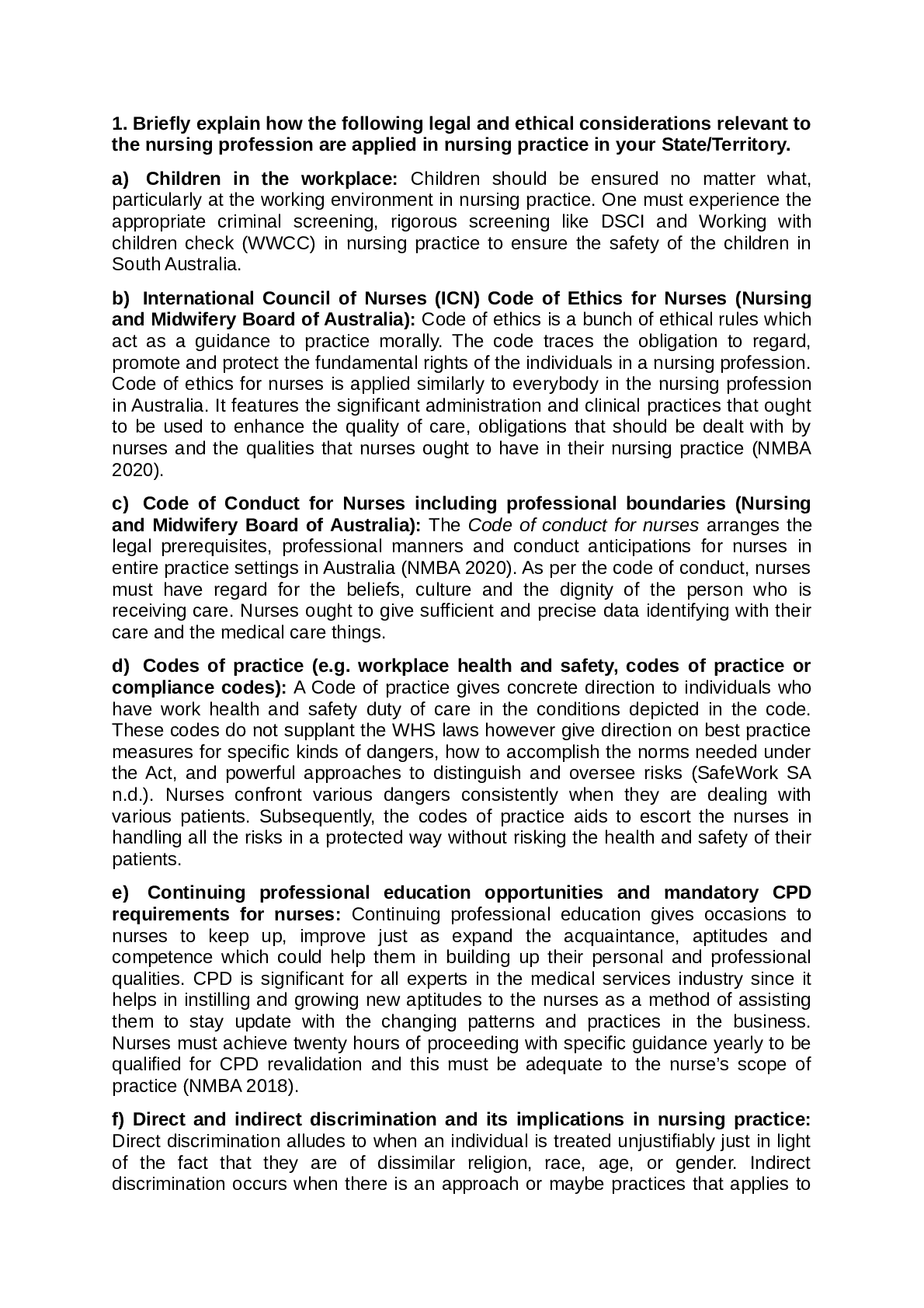
Buy this document to get the full access instantly
Instant Download Access after purchase
Buy NowInstant download
We Accept:

Reviews( 0 )
$20.00
Can't find what you want? Try our AI powered Search
Document information
Connected school, study & course
About the document
Uploaded On
Apr 05, 2022
Number of pages
26
Written in
Additional information
This document has been written for:
Uploaded
Apr 05, 2022
Downloads
0
Views
53


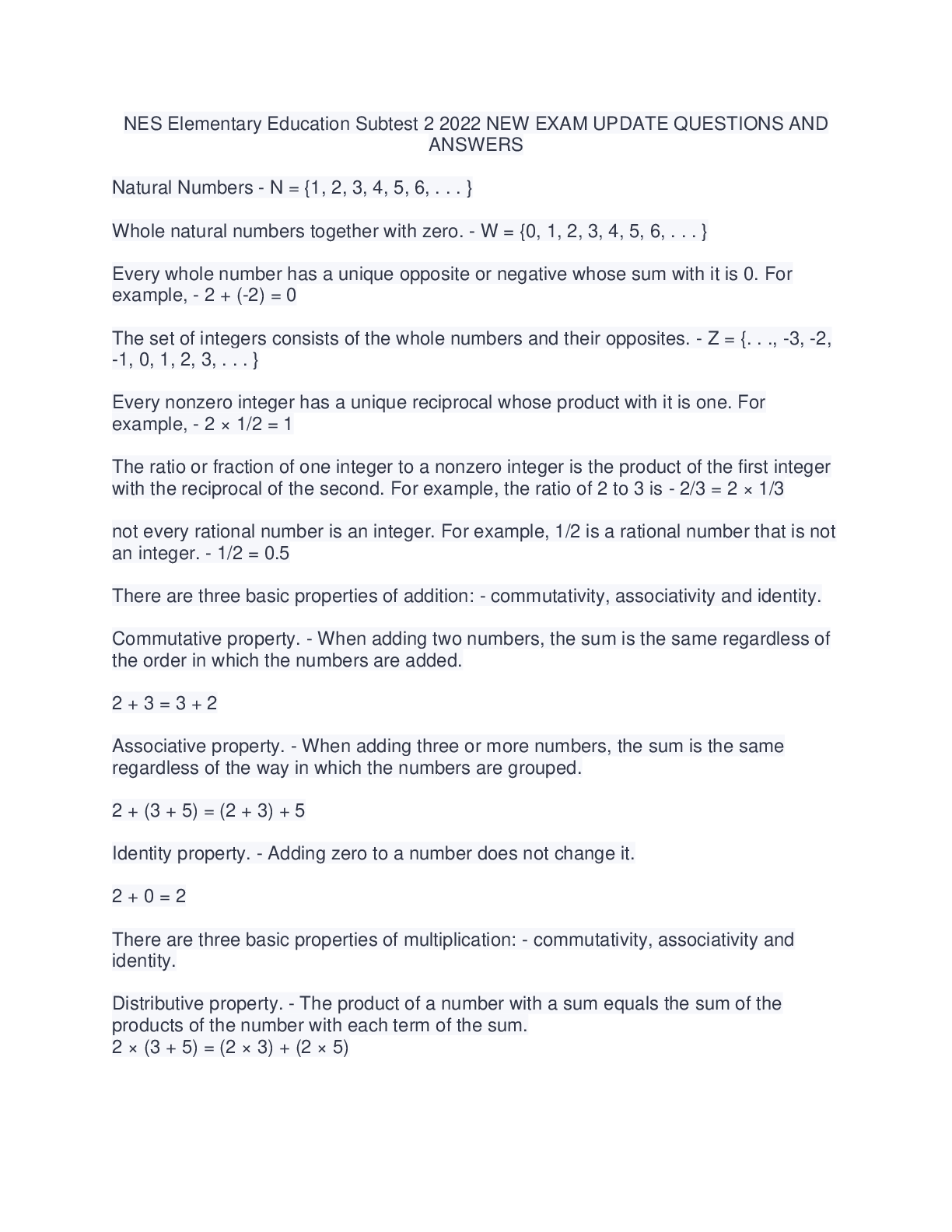
.png)

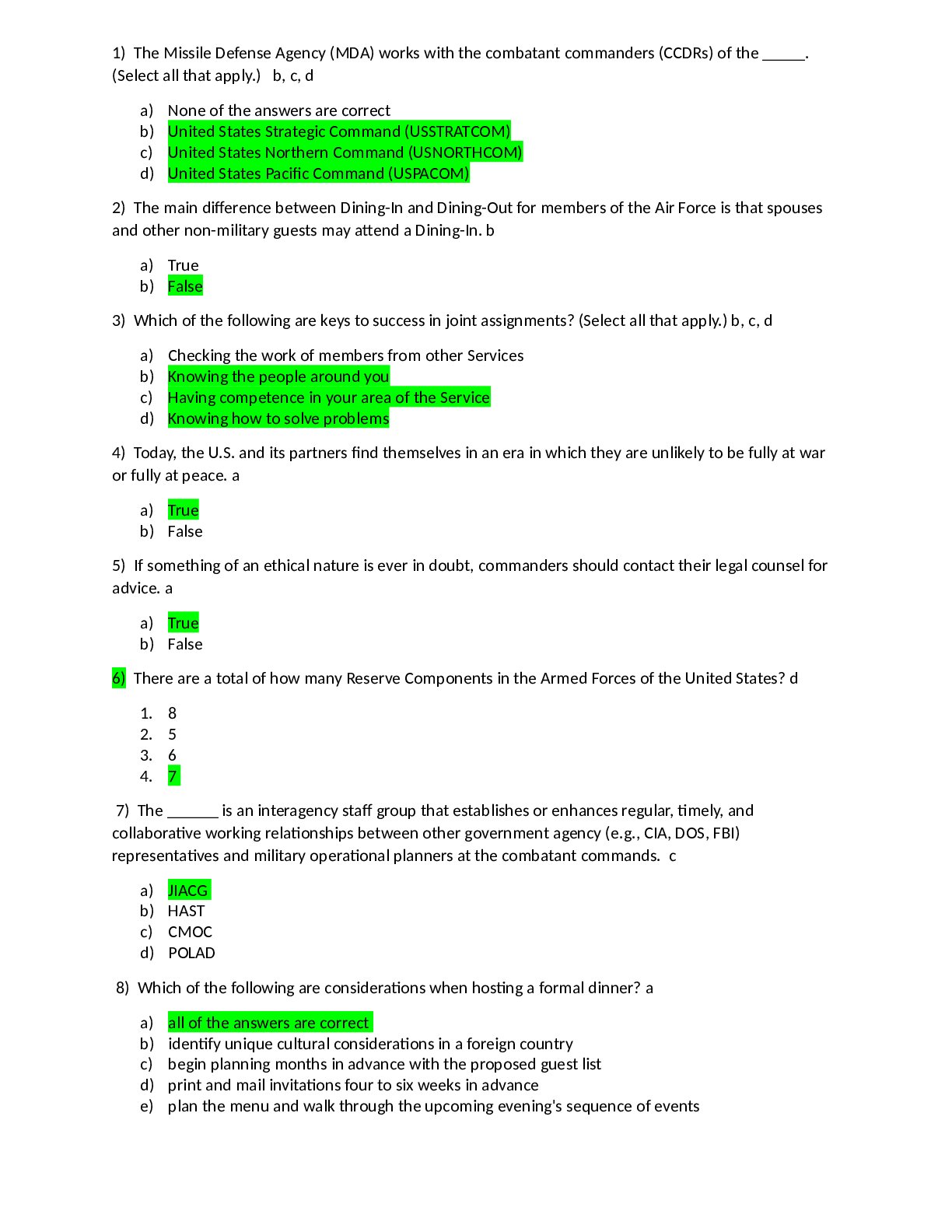
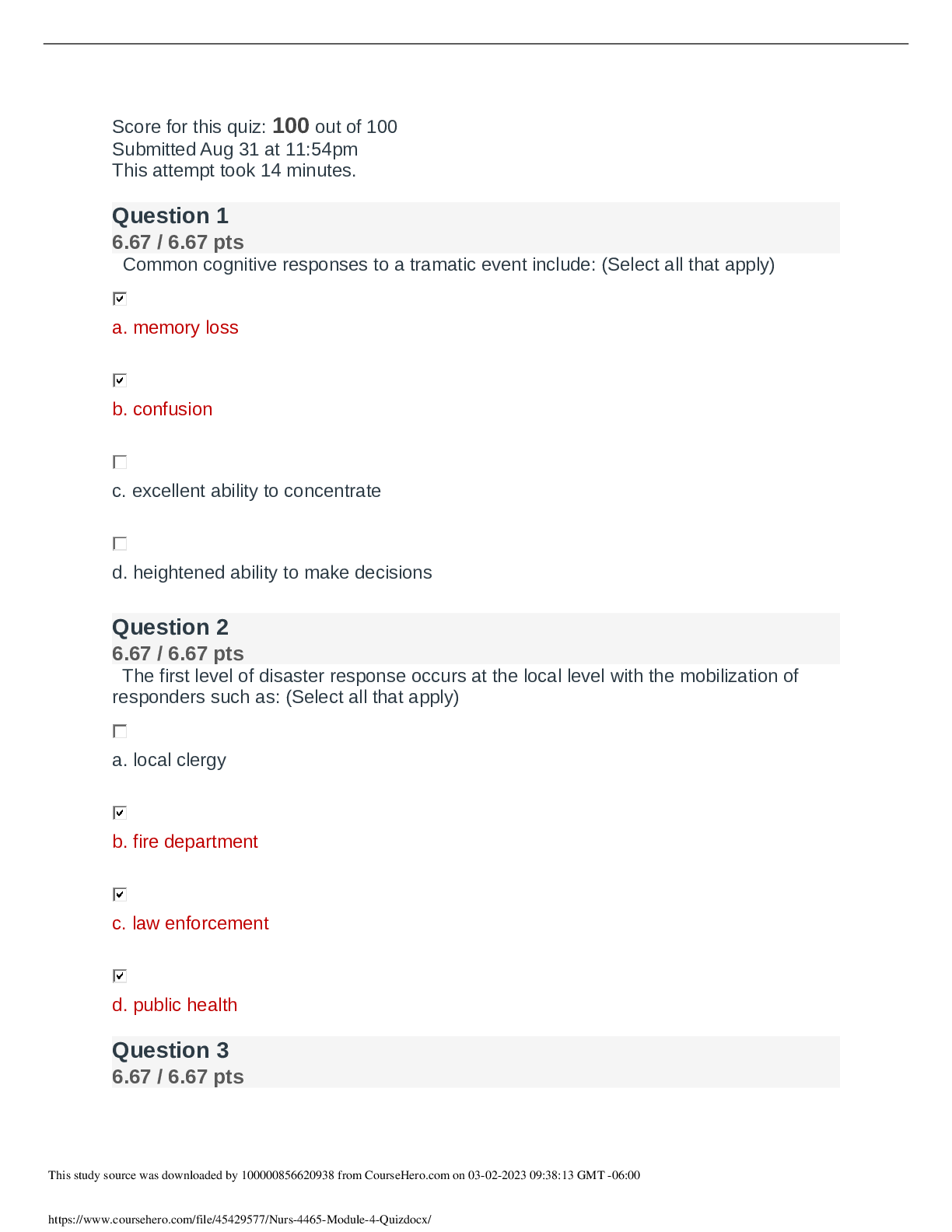
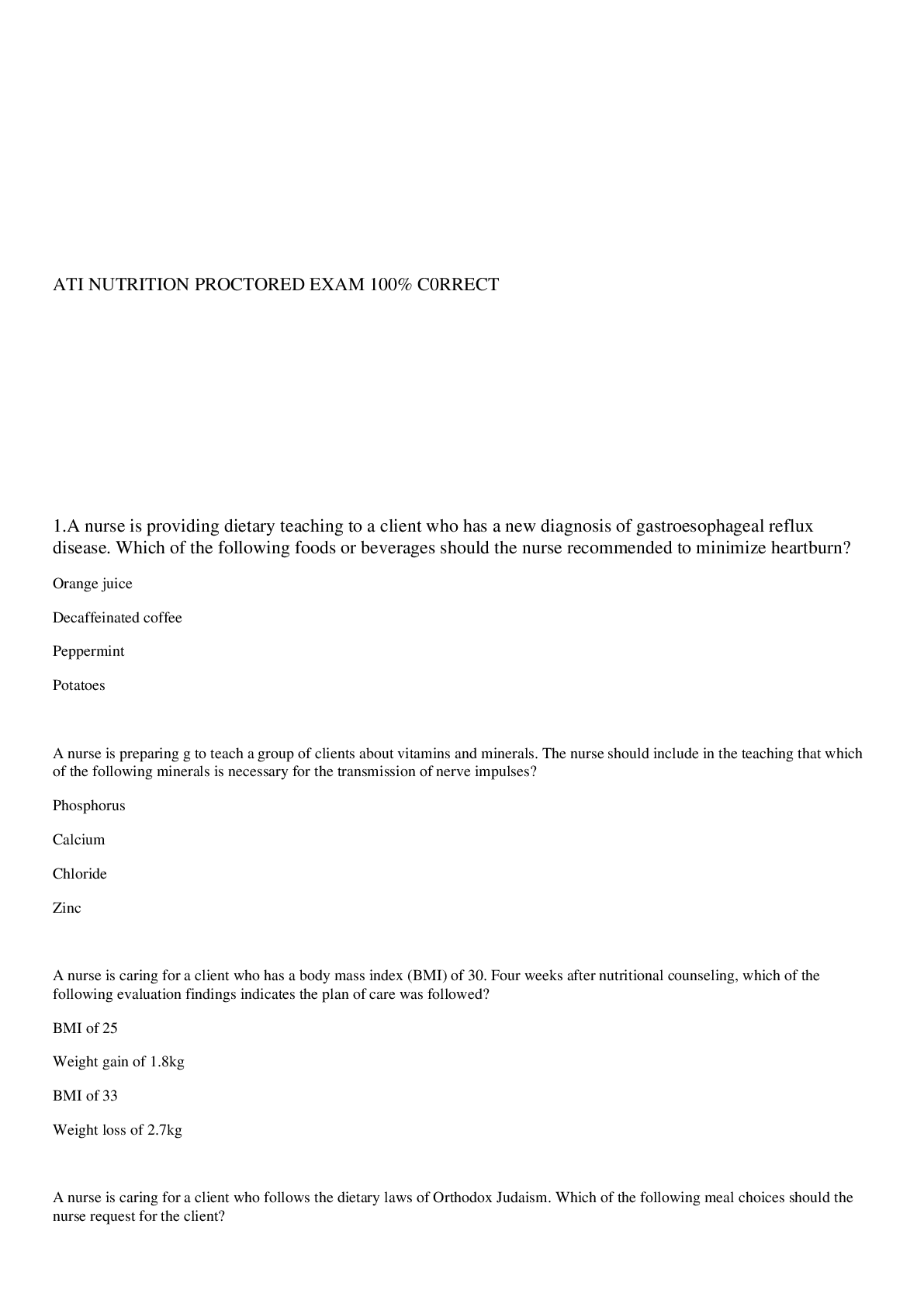
.png)
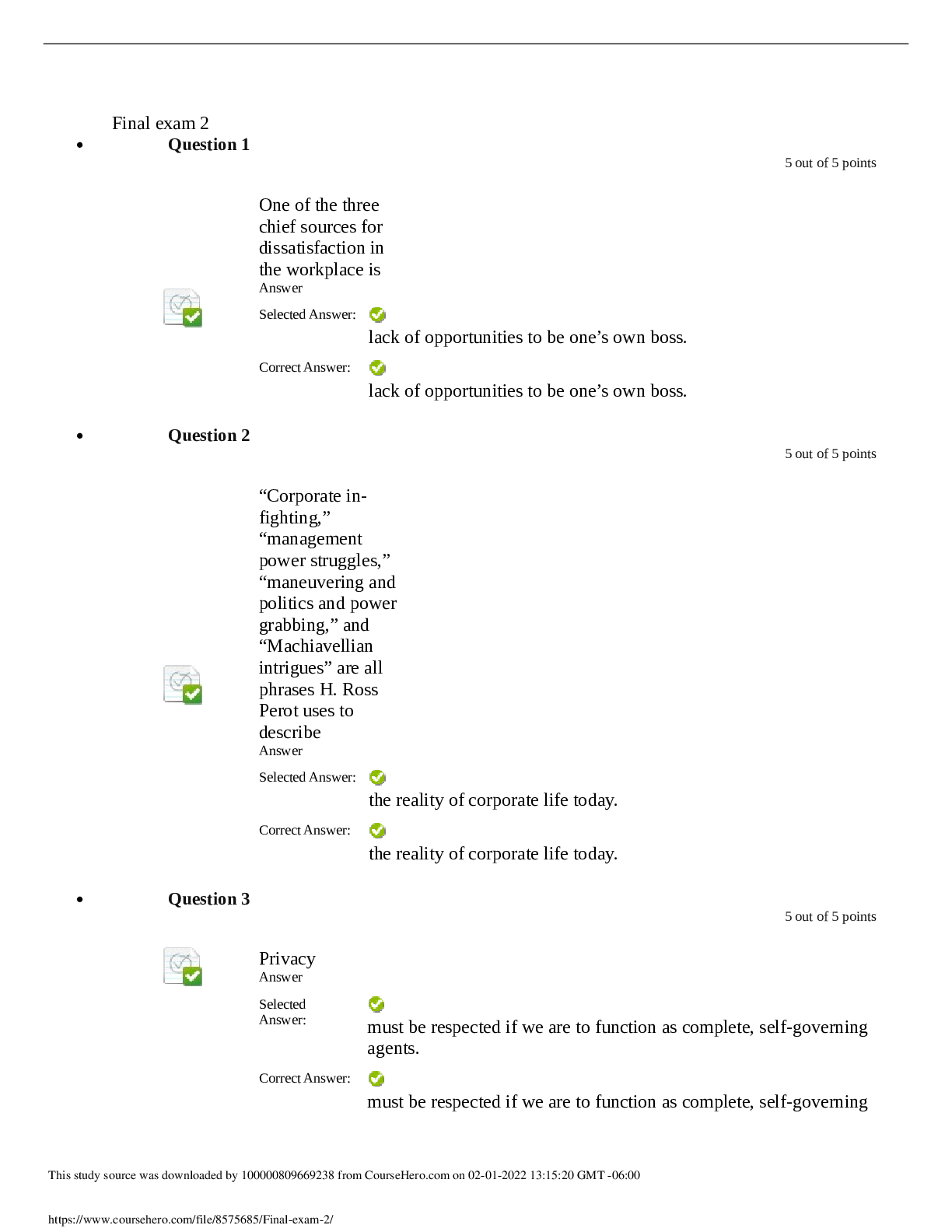
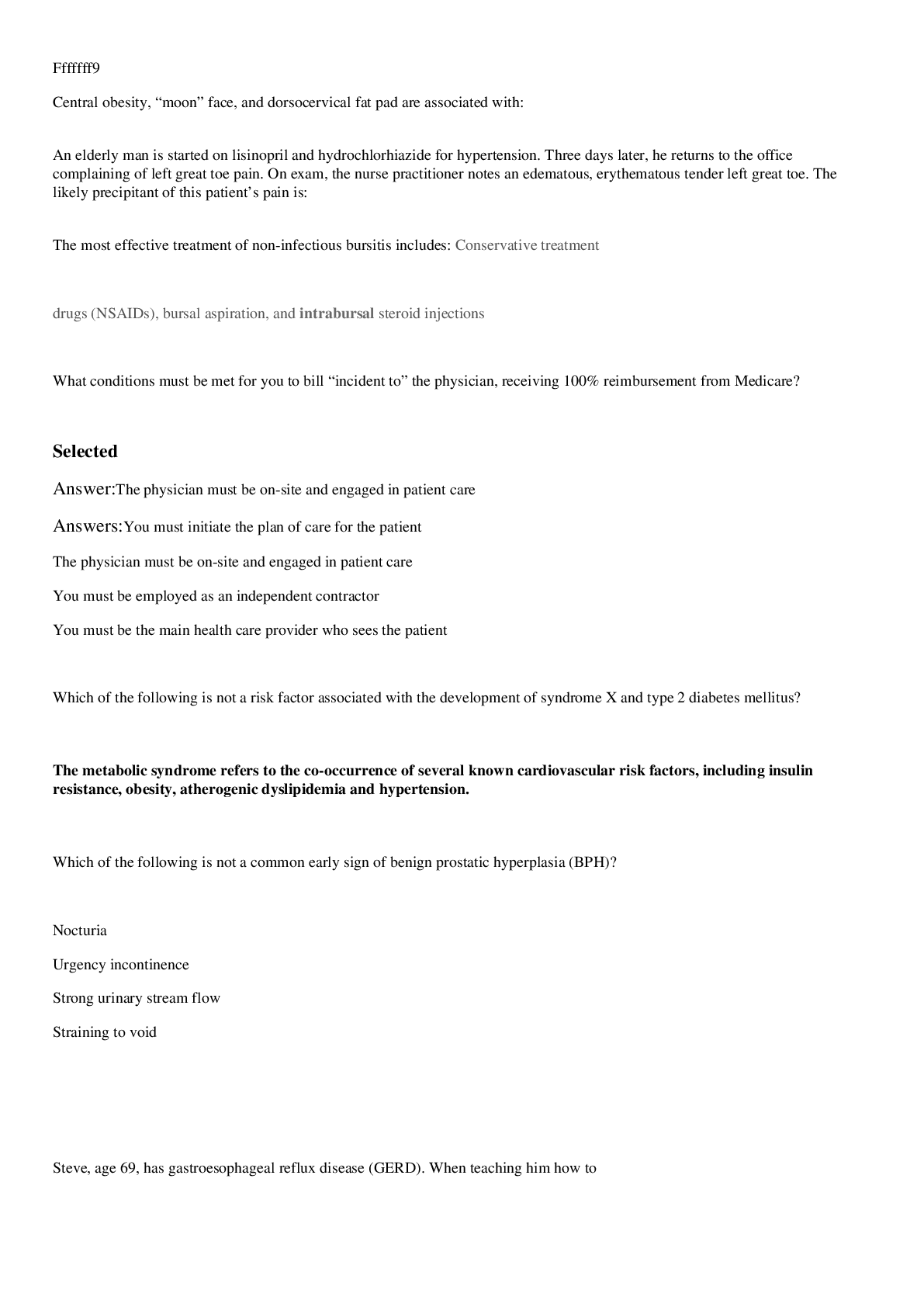
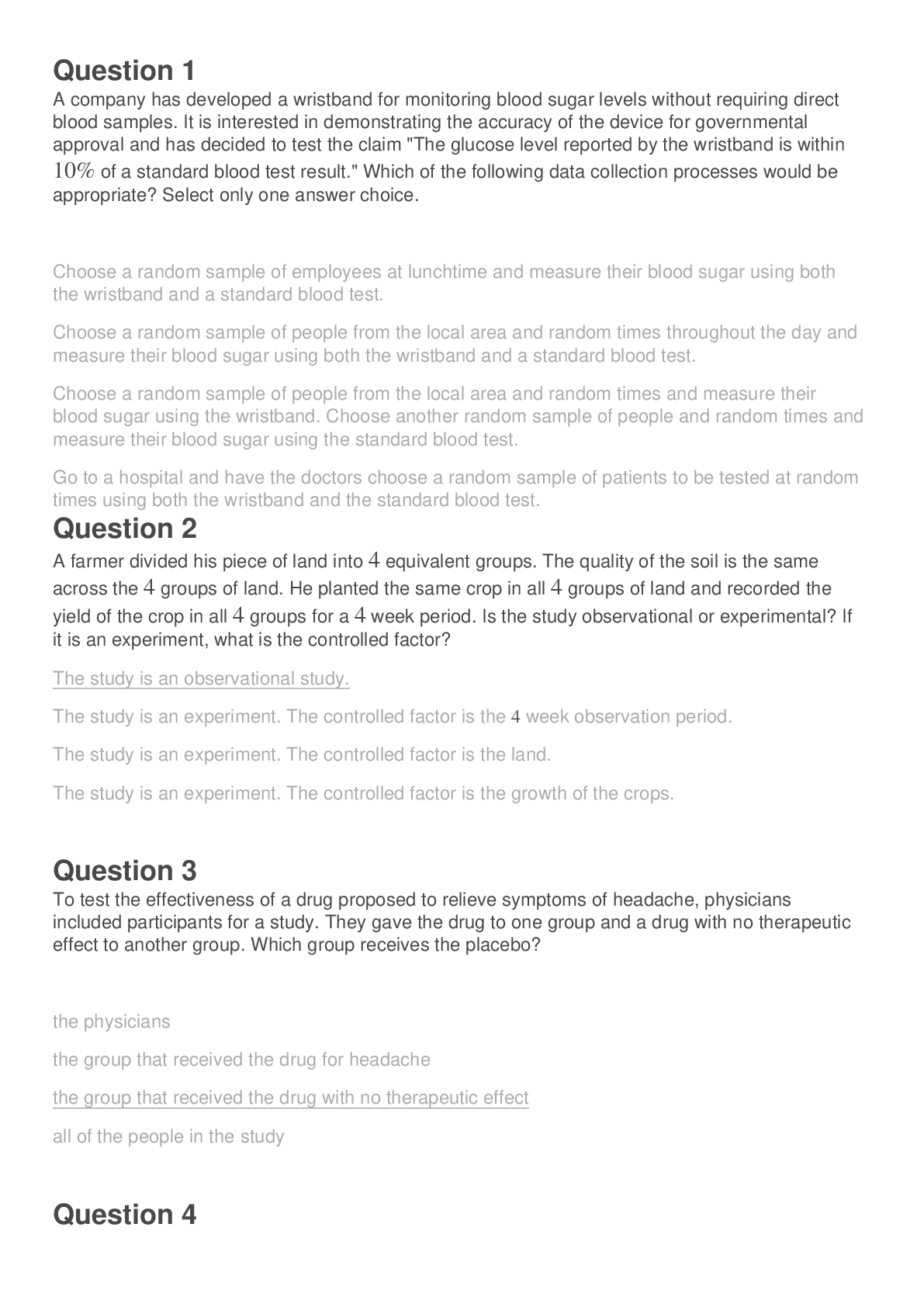
.png)


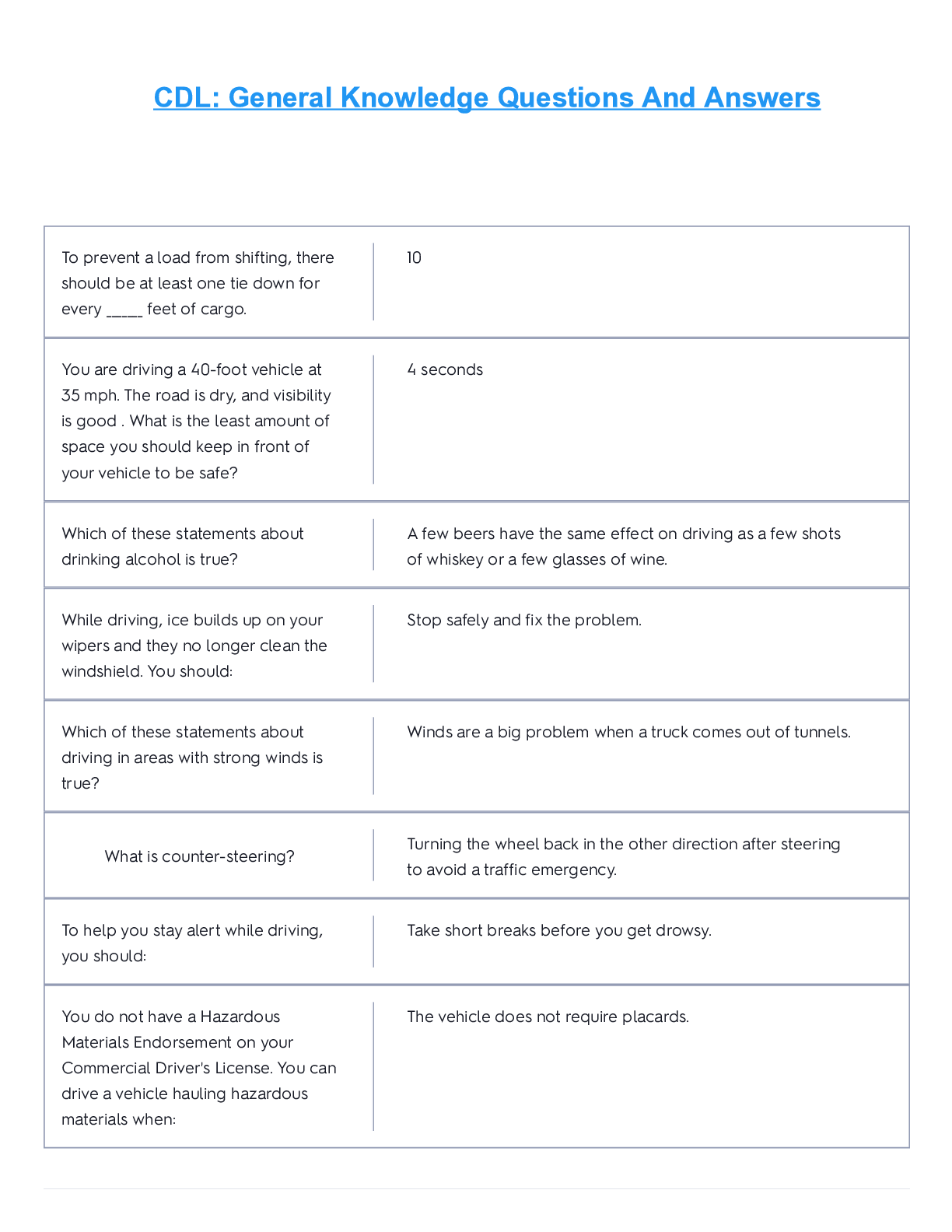

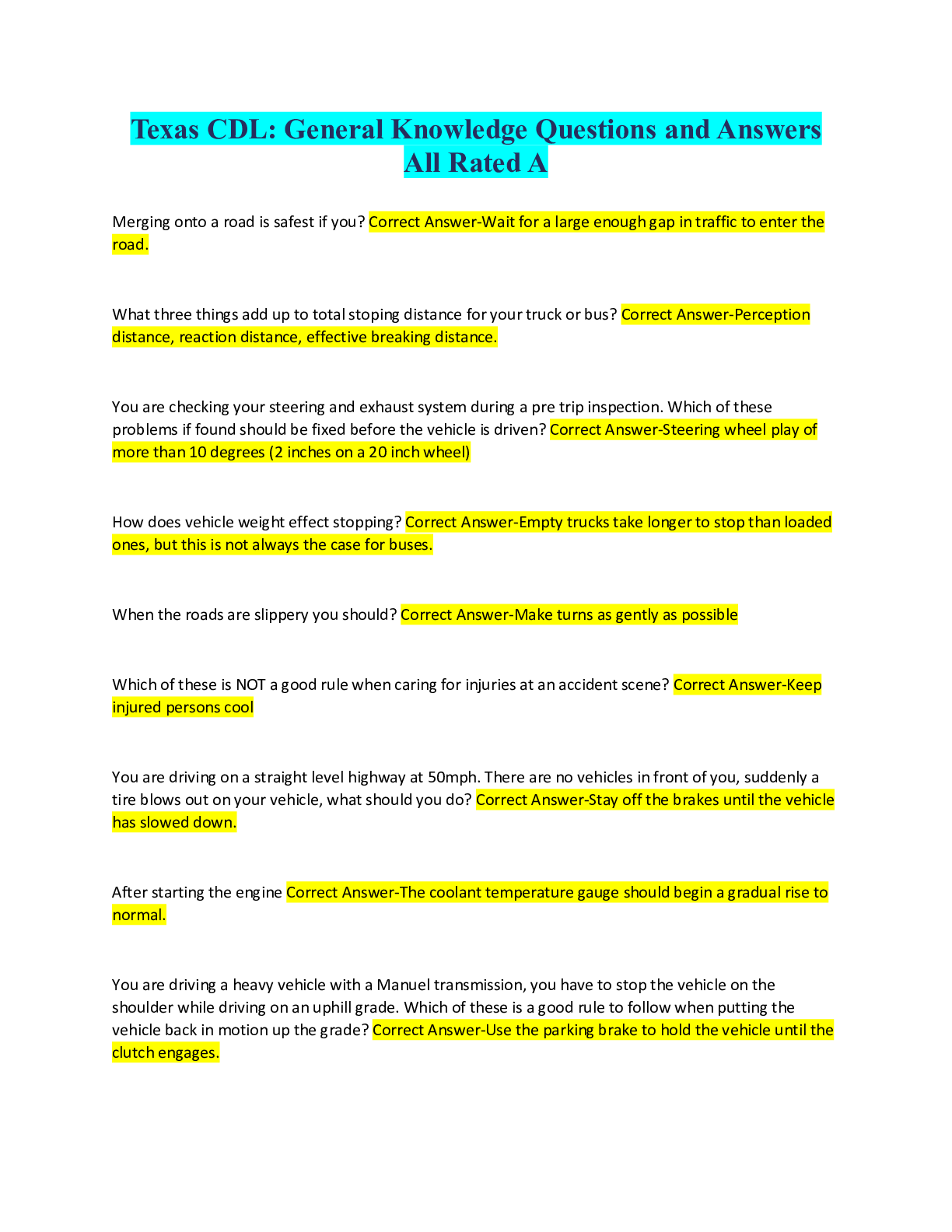
.png)
.png)

